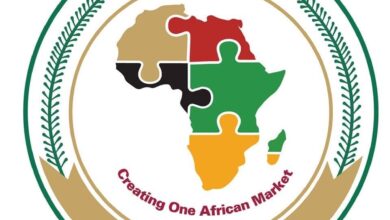Zimbabwe’s Economic Revival: A Pathway to Prosperity

Zimbabwe’s economy is poised for a remarkable turnaround. This article explores the solutions driving Zimbabwe’s economic revival. It includes a number of ways the nation can secure economic revival and growth. Also, concerted effort is important if the nation is to enjoy prosperity and sustainable growth.
Current Economic Challenges to Zimbabwe’s Economic Revival
Zimbabwe faces significant economic hurdles, including high inflation (47.6% as of February 2024), currency depreciation, and fiscal pressures. However, with the introduction of the gold backed currency, relevant authorities are optimistic on how this will help turn around the ailing economy. They are of the view that having a gold-based currency will bring stability and trust to Zimbabwe’s economy. This can only happen if the right parameters are in place to encourage and ensure the success of the new currency.
Diversification and Investment: Key Drivers of Growth
To achieve Zimbabwe’s economic revival, the government is actively diversifying the economy, investing in infrastructure development, and promoting tourism and energy transition minerals. Additionally, diversifying exports will reduce dependence on a single commodity (tobacco) and promote value-added exports. Investing in infrastructure by upgrading transportation networks, energy supply, and communication systems will help the economy move in an upward trajectory of development. Also, promoting tourism by developing infrastructure and marketing campaigns to attract visitors will help feed into the country’s GDP.
Agriculture: A Vital Sector for Revival
Agriculture is critical for Zimbabwe’s economic revival. By leveraging crops like sugar, cotton, and horticulture, Zimbabwe can increase exports and stimulate economic growth. Moreover, supporting agriculture by investing in irrigation systems, farm mechanisation and agricultural research. Under this, the government of Zimbabwe is working to make agriculture a viable addition to community and national economic growth. Additionally, irrigation systems are being revived and constructed. Also, investment in farm mechanisation is improving yield in certain crops like wheat and horticulture produce.
Mining and Energy Transition Minerals: Unlocking Potential
Furthermore, Zimbabwe’s mining sector, including energy transition minerals like lithium, offers significant opportunities for growth. Zimbabwe has a number of minerals which can be beneficial to economic growth. Moreover, value addition before export of these minerals increases profit and the circulation of foreign currency in a nation that uses multiple currencies. It also improves the nation’s GDP and stimulates Zimbabwe’s economic revival. All these, if done well in Zimbabwe will improve the general well-being of Zimbabweans as there will be more access to public funds to improve public sectors such as health, education, employments creation and infrastructure development.
Additionally, energy transition minerals like lithium will greatly improve the energy sector, not only in Zimbabwe but globally as well. Zimbabwe has one of the largest reserves of lithium in Africa, with key deposits found in the Goromonzi area, about 80 kilometres southeast of the capital Harare. Moreover, lithium can be used to provide electricity for domestic and commercial use. The success of this will ensure that the incessant power cuts Zimbabwe is facing will cease.
Research and Development: A Catalyst for Revival
Research and development are essential for driving innovation and growth in key sectors. It can help diversify Zimbabwe’s economy, reducing dependence on traditional sectors like agriculture and mining. Additionally, it can foster partnerships between academia, industry and government, promoting collaboration and knowledge sharing. These partnerships help improve economic activities in the country and boost its growth. This will help Zimbabwe’s economic revival drive.
Conclusion
In conclusion, Zimbabwe’s economic revival is within reach. By implementing these solutions and leveraging the country’s strengths, Zimbabwe can achieve economic growth, create jobs and improve living standards. It is apparent that there is much to be done to ensure success. Therefore, involvement of every Zimbabwean is vital and it will boost not only local confidence but global confidence in Zimbabwe as well.




